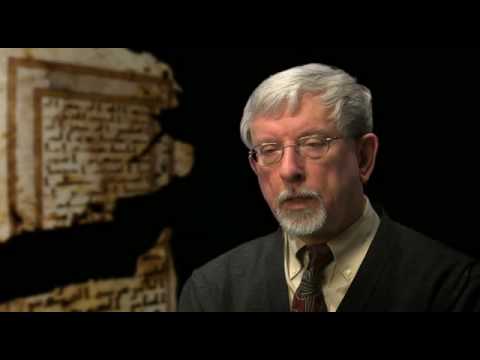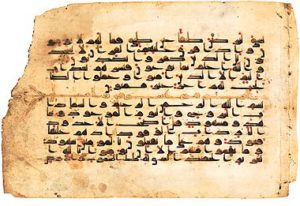
From Gerd Puin to Edip Yuksel

From: Gerd Puin <…>
To: Edip Yuksel <…>,
Cc: Ephrem Malki <…>, Alfred Laßotta <…>, Markus Groß <…>
Date: Fri, Oct 15, 2010 at 1:53 AM
Subject: Thanks for additional Koran translation
Dear Mr Yuksel,
A month ago I received a parcel from Brainbow Press containing some books which I had ordered without knowing that the expenses for the air freight from USA would be so high; in addition, you have added an additional copy of your Quran translation. I want to thank you for this generosity! Your translation (as well as your Manifesto) is, to my view, an extremely important text which I have have listed in my commented bibliography of recent Quran editions and translations. – Since 2002 I keep an article written by ‘Layth’ on the ‘Companions of Heaven’, taken from www.free-minds.org/hur.htm . Having seen that your co-translator is Layth Saleh al-Shaiban it is clear now who the author of the ‘Companions of Heaven’ is! In his article he comes to the conclusion that the hur al-‘in in the Quran are the heavenly maidens and he is wondering about a publication in German which has the same result. The book which he refers to has been translated into English and is even augmented in comparison with the German edition: Christoph Luxenberg (pseud.): The Syro-Aramaic Reading of the Koran. A Contribution to the Decoding of the Language of the Koran. Berlin: Schiler 2007, see www.verlag-hans-schiler.de .
In the context of Luxenberg I want to add that he (in the year 2000) proposed (in the book mentioned) to understand Surah 19 Verse 24 in a different way: ‘Then he called to her immediately after her delivery: Do not be sad, your Lord has made your delivery legitimate!’ It is amazing to see how the passage was understood in a Turkish translation with these details:
Diyanet isleri Baskanligi Yayinlari: Kur’ân-i Kerîm Ve Türkce Anlami (Meâl). Ankara: Emel Matb. San Ltd. STI, 1988, 15. Baski. – Evidently, the first edition of this translation appeared in 1961, but I cannot control whether the passage in question has always been translated in the way of the 1988 edition. In the attachment I send you a note from the introduction of the translation naming the responsible persons, as well as the pertinent passage from the translation on page 305.
In the later editions of the Turkish translation the ‘Rabbin, icinde bulunani serefli kilmistir’ has been given up for the conventional understanding ‘Rabbin, senin altindan bir su arki meydana getirdi’. Isn’t that amazing? It was a correct reading, evidently without the knowledge of the underlying Syriac, even many years before Luxenberg came out independently, because he did not know about this Turkish translation!
Again, many thanks and good luck for your work,
Yours Dr. Gerd-R. Puin
From: Edip Yuksel <…>
To: gerd puin <…>
Cc: Ephrem Malki <…>, Alfred Laßotta <…>, Markus Groß <…>,
arnold mol <…>, Layth – <…>, Taslaman Caner <…>, abba Gershom <…>
Date: Sat, Oct 16, 2010 at 2:13 AM
Subject: Re: Thanks for additional Koran translation
Dear Gerd,
Nice to hear from you. The first time I came to know you was from an cover report published in Atlantic Monthly in January 1999.
http://www.theatlantic.com/magazine/archive/1999/01/what-is-the-koran/4024/
Of course, then I had and still have problem with your assessment below reported in that article:
“Gerd-R. Puin’s current thinking about the Koran’s history partakes of this contemporary revisionism. ‘My idea is that the Koran is a kind of cocktail of texts that were not all understood even at the time of Muhammad,’ he says. ‘Many of them may even be a hundred years older than Islam itself. Even within the Islamic traditions there is a huge body of contradictory information, including a significant Christian substrate; one can derive a whole Islamic anti-history from them if one wants.”
However, regardless of my disagreement with some of your conclusions, as the one above, I respect your work since it critically examines the conventional assumptions of Sunni or Shiite scholars and the Orientalists who are influenced by them. Of course, we are all, including you, are more or less influenced by the teachings of those sects. Let me the nature of my disagreement with your statement above. I agree with the half of your first statement quoted above san-cocktail, since indeed some of the verses of the Quran, for instance the 14 different letter/number combinations initializing 29 chapters, were not understood even at the time of Muhammad.
I am not sure why among so many crucial mistranslated or controversial passages and words, in your first letter you started with the word Sariyya, but I would like to thank you for pulling my attention to the multiple meaning of this word.
Indeed the word means a flowing water or leader. Unfortunately, in Quran: a Reformist Translation I did not reflect the other meaning, that is, leader. I will inshallah make the necessary correction for the next edition.
I would like the have a review from you on the Reformist Translation.
As for the word HWR (read Hoor), I do hesitate to translate it as raisin as suggested by Luxenberg, since the word simply means ‘friends to converse with’. It has the same root with another Quranic word HaWaRiyun, that is, Disciple of Jesus whom Jesus made numerous conversations with. HaWaRa means to converse or return, and it is used in the Quran 13 times in its all forms.
PS: I added four of my colleagues to this list so that you may get to know each other.
Layth al-Shaiban, You have some information about him.
Caner Taslaman, a professor of philosophy and author of numerous books on the Quran, Philosophy, and Science.
Abba Gershom, a Karaim scholar who has offices in Holland and Jerusalem. We are considering to co-found an institution to study Abrahamaic Religions through critical analysis and comparison of their scriptures. We are currently looking for a Christian researcher for our core team.
Arnold Yasin Mol, the founder of Deen Research Center from Holland, and my co-editor for the Critical Thinkers for Islamic Reform. (See:www.deenresearchcenter.org )
PS2: Now you owe me the introduction of the three friends on your cc list 🙂
Peace,
Edip
From: gerd puin <gerd.puin@t-online.de>
To: Edip Yuksel <yuksel@yuksel.org>
Date: Mon, Oct 18, 2010 at 6:51 PM
Subject: AW: Thanks for additional Koran translation
: Important according to our magic sauce.
Dear Edip,
I thank you for the instant reply, as well as for the links you gave me for further reading and looking into the scene of reformers of Islam. In a way, however, I have the impression that I did not express myself clerarly enough.
- I wanted to give, via you, my compliments to “Laith”, that he, by studying the Quran alone, had arrived at the same solution as Luxenberg did in a publication which is now available in English, so that he can read it himself. – Your remark, that “Huur” has something to do with the “Hawaariyyiin” is no contradiction, since aHwar (m. sg.), Hawraa’ (fem. sg.) and Huur (m. + f. pl.) simply mean “white”, and the Hawaariyyiin of Jesus were clad in white, which became their “brand”.
- By quoting the Turkish translation and the names of the responsible translators I wanted to show that years before Luxenberg had made his explanation of Surah 19 Verse 24 there was a concept of this verse which is almost identical with the argumentation ov Luxenberg. Only later on the Turkisch translation left this correct path and agreed to the (ridiculous, by the way!) traditional interpretation. Although I am not a Muslim, but for the sake of the correct interpretation of the Quranic text I just thought that this detail might be of interest for you and that you might be able to trace down the arguments of the former translators as well as those of those who gave it up.
Since some of my views were published by the Atlantic Monthly ten years ago I have been able to substanciate the idea that the Qur’an contains pre-islamic stories (asHaab laykah / al-rass, qawm tubba’, al-Ahqaaf) in my article in “The Hidden Origins of Islam”, published by Prometheus Books in 2010 in English.
In a forthcoming publication in English on the orthography of the Qur’an I am confident to prove from Qur’anic orthography that the negative interpretation of Surah 109 (al-Kaafiruun) is a bad and deliberate traditional choice for seclusion by Islamic tradition, since the Surah can equally be understood in the positive sense of “I do worship what you worship …” etc.
Again, looking at your Manifest and at your honorable agenda I have the impression that you could profit from Orientalists’ achievements. Usually, the Muslim notion of the Qur’an does not take into consideration that the Qur’an’s existence is related to the surrounding Christian or Jewish civilizations. Thus, it is not amazing that so many words in Islam are Aramaic, derived from contemporary Christian usage, like “qur’an = lectionary”, “Salaah = prayer”, “zakaah = alms” and many others. Other words in the Qur’an like “jalabiib” or “khumur” are only found in the Qur’an, they have no roots in Arabic, being hapaxes – which means that we cannot know what they really mean. This view on Islam or on the Qur’an has to take the contemporary civilizations and languages of its naissance into account, which means that the Hebrew and Syriac layer has to be taken into account. E.g., why should „tayammum“ mean an ablution with sand? Isn’t there the Hebrew word of “yamm = sea” in the Qur’an? Would it not be more fitting to think of “making the ablution with sea water”, in case you are travelling on a ship?
Your last wish to give you an introduction to the three persons on my cc-list is a bit embarrasing, as they are simply interested in my work; only Prof. Markus Gross is more directly related to me because he is the editor of my articles in the past Inârah volumes (see www.verlag-hans-schiler.de) , although he is not an orientalist. In fact, as far as Islamic and Qur’anic studies are concerned, My only affiliation is my wife, Dr Elisabeth Puin.
Sincerely,
Gerd


